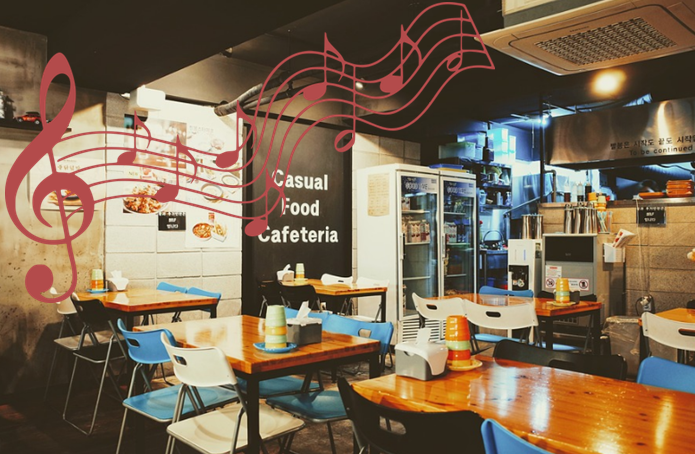
Seoul – In a landmark ruling, the Supreme Court of Korea has overturned a lower court decision, stating that franchise businesses must pay copyright fees for music played in their stores, even if they obtain the music through a background music service.
The ruling centers on the distinction between commercially available music recordings and background music specifically designed for in-store use. The court determined that in-store background music does not qualify as "commercial recordings" under copyright law, as it is created for a different purpose than general sale.
The case involved the Korea Music Copyright Association (KMC) and LotteGRS, the operator of fast-food chain Lotte리아 and coffee shop Angel-in-us. The KMC argued that LotteGRS infringed on copyrights by playing music in its stores without proper licensing.
LotteGRS had been using a music service provided by companies like Shopcast and Plantinet, who supplied digital music files to franchise locations. These files were often the same as those sold commercially but were formatted differently for the service.
Lower courts had sided with LotteGRS, citing a provision in the Copyright Act that allows for the performance of commercial recordings in public places without charge, as long as no fee is collected from the audience.
However, the Supreme Court disagreed. "The sound source file in this case is digitized for playback as background music in the store, so it does not fall under the category of a commercial recording," the court stated. "The commercial recording referred to in Article 29 (2) of the old Copyright Act should be interpreted as meaning a recording produced for the purpose of being sold on the market."
This decision has significant implications for franchise businesses across Korea, as it clarifies the legal obligations for playing music in their establishments. The Supreme Court has also ruled in favor of the KMC in a similar case against coffee chain Tom N Toms.
[Copyright (c) Global Economic Times. All Rights Reserved.]






























